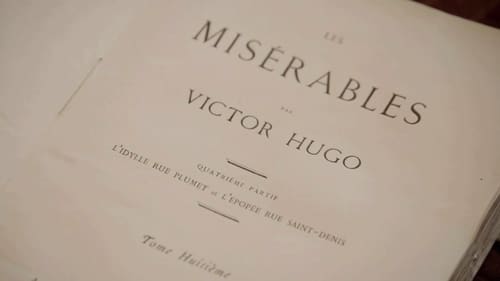
Director
When France rumbles, the strategy and control of public order become a crucial political issue. Between protecting institutions and guaranteeing the right to demonstrate: the right balance is subtle. At the beginning of the Yellow Vests movement, at the end of 2018, the principles of "French-style" policing were shattered. The ransacking of the Arc Triomphe, the hundreds of injuries among the demonstrators and the forces of order mark the minds. How did it come to this? In order to understand, the film questions the so-called "legitimate" force and confronts them with the images of these confrontations.

Editor
The prodigious genesis of a monument of world literature, too often reduced to its popular success, also recounts the tormented conversion of its author, Victor Hugo, to the ideal of social progress.

Writer
The prodigious genesis of a monument of world literature, too often reduced to its popular success, also recounts the tormented conversion of its author, Victor Hugo, to the ideal of social progress.

Editor
September 3rd, 1939. Britain and France declare war on Nazi Germany, only two days after the Wehrmacht invades Poland. This day, the sad date when the fate of the world changed forever, the Phoney War began: eight months of uncertainty, preparations, evacuations and skirmishes.

Writer
Can one of the regulatory authorities of our states be financed by private funds? This captivating investigation lifts the lid on one of the most secretive organization's funding.

Director
Can one of the regulatory authorities of our states be financed by private funds? This captivating investigation lifts the lid on one of the most secretive organization's funding.

Director

Editor
In 1971, Uruguayan journalist and writer Eduardo Galeano published his landmark work Open Veins of Latin America, in which he comprehensively described the centuries of economic exploitation of Latin America. Almost 40 years later, filmmaker Gonzalo Arijon reevaluates the situation. His search takes him from the soybean plantations of the Brazilian Amazon to the tin mines of Bolivia to the deep jungles of Ecuador. Arijon’s politically committed film allows the local populations to speak for themselves, interspersing this with archival footage of speeches by Hugo Chávez, Lula da Silva and Evo Morales. Galeano himself also speaks—sometimes in poetic language— about how the rise of socialist governments in the early 21st century is benefitting Latin America, and what more can be done.






